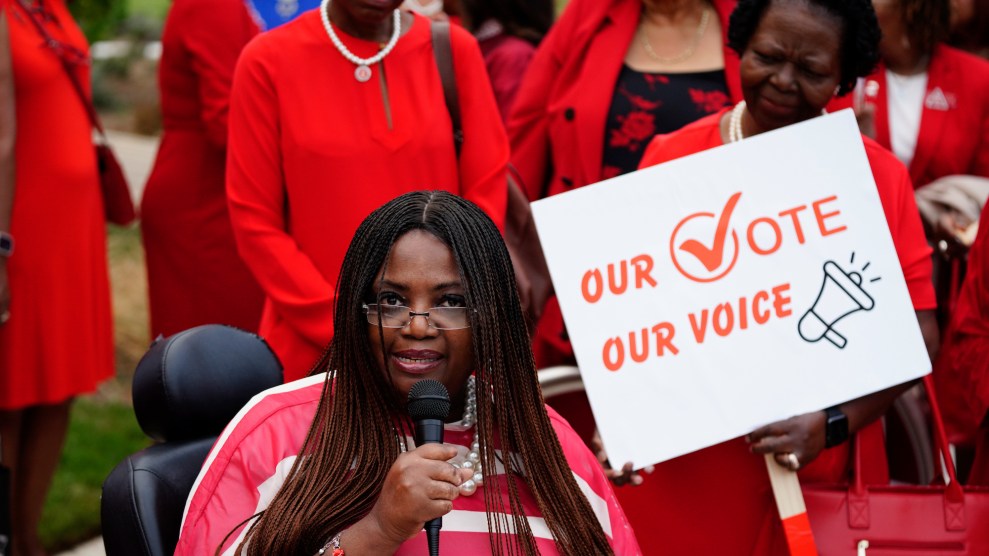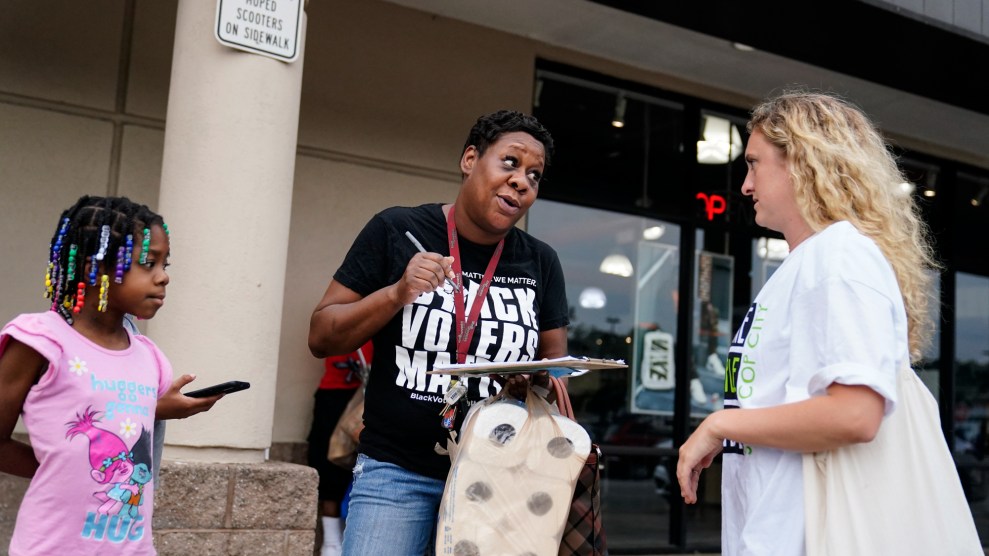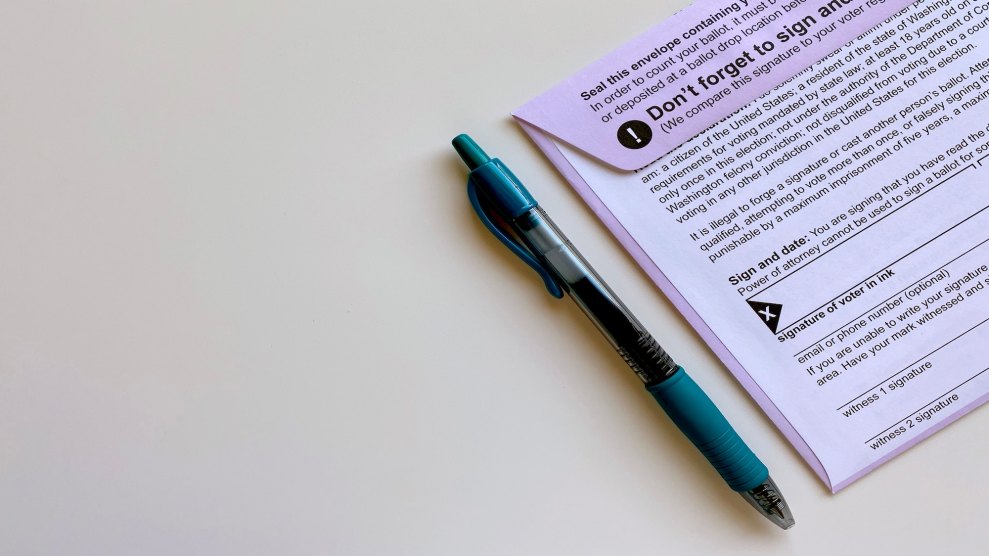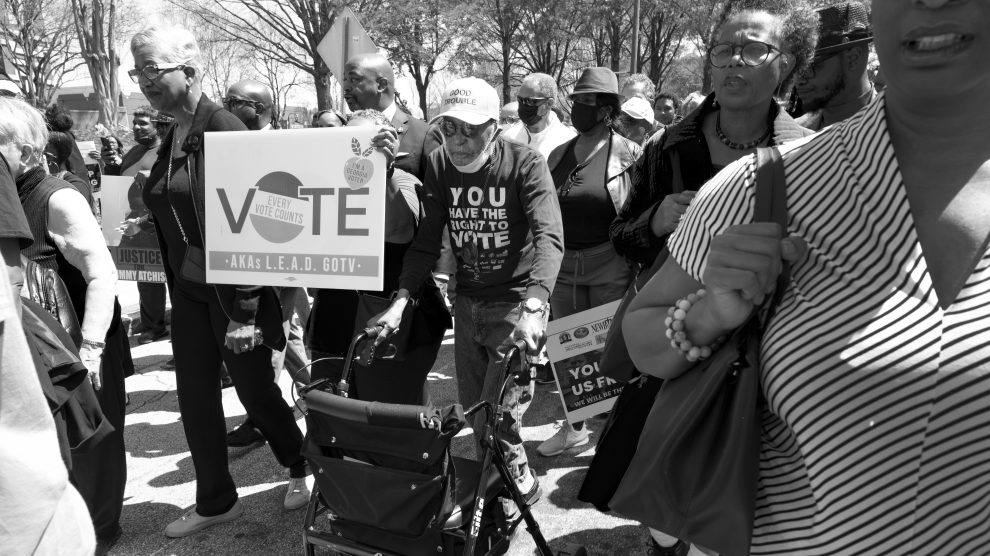
Candace Wicks speaking at a rally, surrounded by other Delta Sigma Theta members, about her experience voting under SB 1. Robin Jerstad/AP
Candace Wicks believes in the importance of educating people. For three decades, Wicks was an elementary school teacher with the Dallas Independent School District, which at one point named her its teacher of the year. Now retired, Wicks, who is 58, works to educate fellow Texans on why they should vote in not just federal but local elections.
“We need to start at the local level and work our way up,” Wicks said. “The quality of our daily lives is contingent upon what happens at City Hall [and the] school board if you have children.”
But in 2020, while undergoing emergency surgery, Wicks experienced complications that caused sepsis. As a severe side effect of the life-saving antibiotic doctors gave her, nine of her fingers and both her legs had to be partially amputated. It’s now very difficult for her to write a consistent signature.
Just a year later, Texas passed Senate Bill 1, one of many voter suppression laws passed by GOP legislatures after Donald Trump’s 2020 presidential election loss. The bill allows officials to compare a person’s signature to any they had on file—including decades-old ones used when people may first have signed up to vote—in addition to new limitations on voting by mail.
“I was devastated,” Wicks said. “I couldn’t believe it at first.” Wicks’ ballot was at first not accepted due to issues with her signature when she voted in the 2022 midterms. Her vote would eventually be counted, but, it is the kind of stressful experience that discourages voters from participating in democracy.
Wicks is a member of Delta Sigma Theta, a historically Black sorority that in 2021 joined a lawsuit challenging SB1 on the grounds that it violates the Americans with Disabilities Act, the Rehabilitation Act, and the Voting Rights Act. Some parts of the bill, like the requirement to use a specific “voter identification number,” have already been struck down. The federal trial over other parts of the bill—including signature matching—wrapped up in February, with a decision impending but the date unknown.
People with a wide range of disabilities may have trouble writing a consistent signature, including those with cerebral palsy and Parkinson’s disease. Signatures can also change as people age, Wicks noted. “As we continue to mature, your signature is going to make some changes,” she said. Vision loss, which can be linked to age-related health issues, has also been linked to changes in handwriting.
And new signature matching verification rules aren’t Texas’ only barrier to voting for disabled people. Its restrictions on mail-in ballots limit who can vote from home; Wicks, a wheelchair user, also worries about “having to get public transportation to” polling locations. Then there’s the added issue of finding an accessible polling location: the Houston Chronicle, for instance, found that nearly half of voting locations in Harris County, Texas’ most populous, are not compliant with the ADA.
Disabled people, Wicks said, “face barriers every day in terms of discrimination in our daily lives.” SB1, which she sees as a form of disenfranchisement, is to her just one example. “We need to make our democracy accessible to everybody, regardless of our ability,” she said.

















